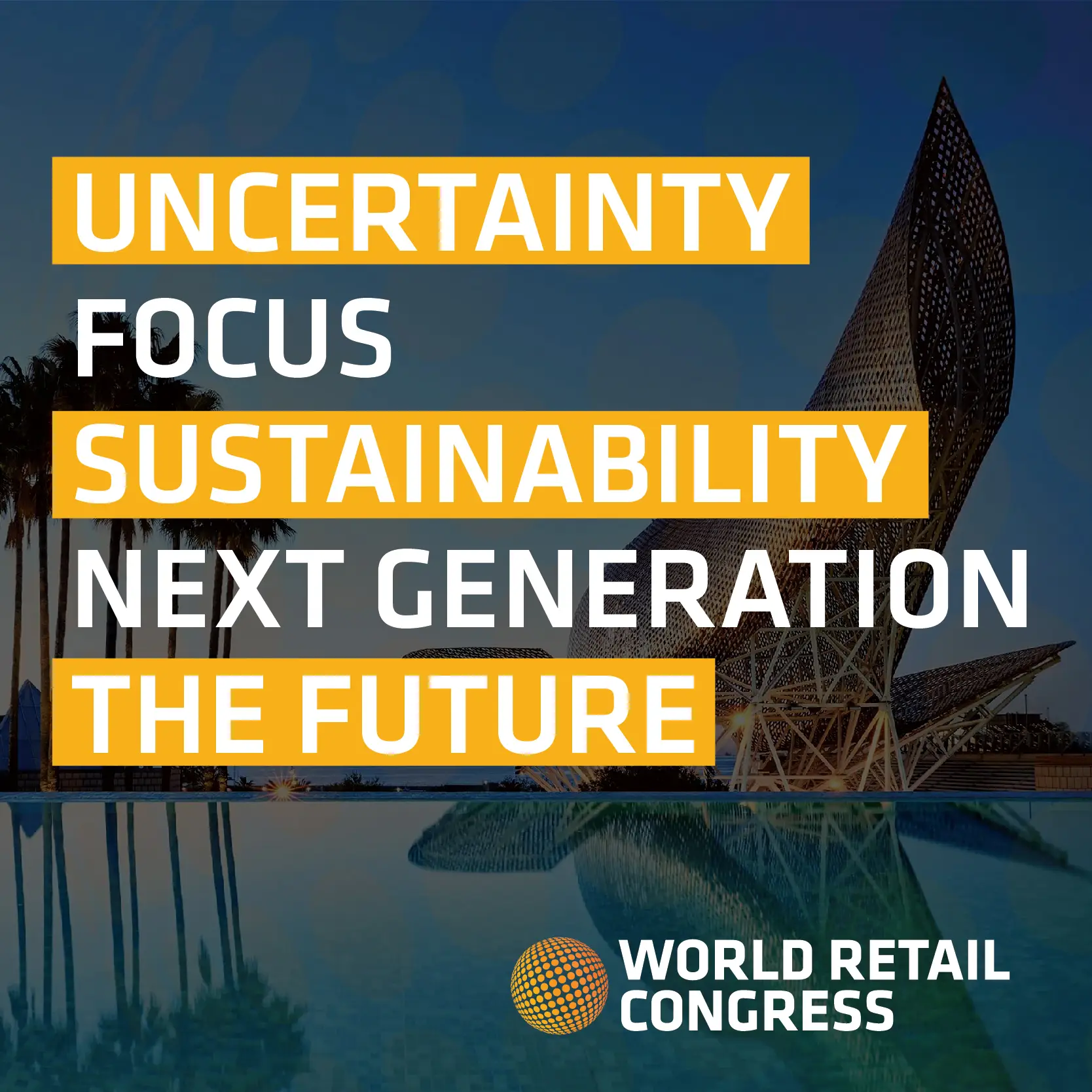If you talk to any retail CEO, anywhere in the world (as I have been over many months to build the World Retail Congress programme) the refrain is that there has never been a more challenging time to be in the top job. Even retail leaders with a good few years under their belts concede that they’ve never known a time like this.
Perfect Stormfront
Pre-2020 was a tough run for legacy brands with the relentless rise of ecommerce and its disruption to long-established, previously highly successful and lucrative business models. But then something extraordinary and existential happened with the arrival of Covid-19 which seemingly changed everything. When the worst of the pandemic eased and vaccination programmes gathered pace triggering cautious optimism, unforeseen consequences began to pile up, shake up retail operations and throw the industry into another series of disruptions. Collateral damage from the pandemic included supply chain bottlenecks and “the great resignation” employment crisis. And then, of course, the invasion of Ukraine began, and any hopes of a global economic recovery were shattered. It was a disruptive international stormfront that propelled some brands and ruined others.
Navigating New Terrain
Throughout this tumultuous three-year period, retail CEOs had to figure out how steer their businesses forward and continue to serve their customers, investors, stakeholders, and employees without missing a beat. Let’s face it, how do retail leaders sleep at night? What are the biggest things keeping them awake? How existential are their nightmares?
Over recent weeks, I’ve chaired meetings with the World Retail Congress Advisory Board and spoken to countless senior retailers from around the world. What has fascinated me is that the core business issues that drive success – or failure – are very similar and consistent across each retail sector and geographic location.
Distilling the Big Issues
I noticed that the biggest issues are shared by everyone keeping them awake at night. But what is unique about the great retailers is that when they lay awake, they are trying to find solutions and ways to move forward. Retail is, after all, driven by the need to serve customers and find growth. Thus, our 2023 Congress theme is “Retail Leadership for Extraordinary Times.” We have distilled a year of research, field reports and extensive conversations to identify six questions that are challenging retail leaders.
- “When can I be certain that the uncertainty is over?”
Any business hates uncertainty. It makes planning and forecasting virtually impossible. Retailers have reported having to constantly rip up budgets and plans during the worst of the pandemic and also during the recovery. In fact, this post-pandemic period is proving to be even more challenging given new economic, geopolitical, and social uncertainties. Although retailers have always believed that they can’t influence external factors, they accepted that fact and worked around and through whatever conditions existed.
But that was then. Given the extraordinary period we’ve been living through, the more realistic conclusion is that you must plan and build anticipating that something economic, social, or geopolitical can suddenly change things. Scenario planning for a range of eventualities in a disruptive marketplace influenced by an uncertain world has become the order of the day. At the World Retail Congress, we have identified managing uncertainty as “resilient retailing.” Successful retailers will build a new level of resilience to meet short- and long-term challenges while not sacrificing the needs (often demands) of consumers who are calling the shots. - “Where should I be focused?”
With challenges coming from all directions, any CEO could be forgiven for not knowing where to focus most of her or his time. So much has happened at lightning speed over the last three years and accelerated during the last 12 months. Retailers have had to battle against the fourfold challenges of inflation at its highest level for over 30 years, a cost-of-living crisis, a recruitment crisis and supply chain nightmares. In this digitally connected world, standing still simply isn’t an option — and more importantly, placing some core, big investment bets on the future are critical. As one top CEO told me, the key thing is to focus in equal thirds on firefighting the immediate, medium term and long-term issues. Building resilience into the business through focus on the balance sheet is vital. Investing in delivering value is critical. And never letting up on accelerating change throughout the business is essential. Many of our speakers — including the CEOs of Mango, Primark, Marks and Spencer, American Eagle, Aldi, and Victoria’s Secret — will share the biggest lessons they learned from the last three years and how their experiences influence how they are steering their businesses. - “I really do believe in sustainability, but let’s get through today’s problems”.
No retail CEO would publicly or even privately admit that they don’t believe in the imperative of embracing a sustainability strategy. That said, so many retailers are yet to embark on meaningful sustainability actions. Their common reason, or explanation, is that it costs more money that the business currently has, and a costly sustainability strategy will lead to massive operational disruption to the organisation. Unfortunately for those retailers, they have no choice. Starting on a sustainability journey is now expected by consumers, legislators, stakeholders, and the media. As Paul Polman, former CEO of Unilever told last year’s World Retail Congress, “The cost of doing nothing is now greater than doing something.” Today’s winning retailers understand that sustainability can improve the bottom line and fulfils a strong sense of “purpose” to deliver sustainable goals for the environment, their customers, employees, communities, and investors. At this year’s Congress we will hear the business case for sustainability from some passionate, purpose-led retailers, including The Body Shop, Albertson’s, the John Lewis Partnership. - “I need to understand the TikTok generation. In fact, I’m not sure I understand my customers anymore!”
In more than one discussion with groups of senior retailers, inevitably someone says that one of the biggest things that worries them is that they are struggling to understand “the TikTok generation” of young consumers who seemingly live their lives in a parallel digital world. These next gens are still keen to shop and buy things, but in ways that retailers above the age of 30, or certainly 40, cannot fully understand. Shopping on Instagram and TikTok is a new world and reflects how the world is changing. And the shift goes beyond just younger generations. All consumers are now fully in control of where, when, how, and from whom they want to shop, requiring a blend of art and science to meet their demands. We call it “customer-focused retailing.”
As table stakes, you need to get closer to your customers through the smart use of data and personalization. Retailers need more people in the business trained with data and analytics skills matched with intuition to understand the new world of digital marketing and operations. As one retailer told me, you have to master how you can bring customers into your ecosystem – what partnerships, products or services are you able to offer your target customers that bring them closer to you? Understanding today’s consumers is the focus of our keynote presentation at the Congress by Professor Scott Galloway for NYU Stern School of Business, known for his blunt, edgy, provocative predictions and opinions. - “eCommerce growth has slowed, so where do I place my bets for the future?”
The incredible acceleration of everyone’s online businesses has slowed and, as a result some big ecommerce platforms have found themselves with overcapacity and skyrocketing acquisition costs. Footfall has bounced back in stores and the key operational concept is omnichannel, which means that future bets must include a refocus on the customer experience. The merging of online and offline shopping will lead the next wave of digital transformation with social and voice commerce, live streaming, short form videos, the metaverse and AI tools such as ChatGPT. Who even heard of ChatGPT six months ago? The smart money has to be to invest for an omnichannel future with tech and experiential solutions that follow the customer journey. - “Do we have enough of the right people with the right skills?”
And last, but by a wide margin not the least, the big focus in 2022 was the disappearance of millions of people from the workforce. That loss may have eased to some degree with a higher employment rate, but there is no doubt that retail needs to fight hard to attract and retain a workforce of diverse skills and experiences to grow the industry. The best retailers already know that this means making their businesses attractive, open, and forward thinking if they are going to succeed.
Sunrise
So, there is plenty to keep retailers awake at night. But life doesn’t stand still. Retailers around the world are already working out how to grow and prosper in this new digital landscape. The uncertainty and the challenges will not diminish, but what is certain is that we’re at the beginning of an exciting new chapter in the history of retailing. World Retail Congress is at the forefront of bringing essential information and insights to top-level international retail executives who will work together to identify actionable solutions, find partnerships, and share how to raise the industry to new levels. We look forward to seeing you in Barcelona.
Note: The Robin Report is the exclusive U.S. media partner for the World Retail Congress. Get full information and book your place with the special Robin Report discount Purchase here and use the special code TRRWRC20
Ian McGarrigle is the Chairman of the World Retail Congress taking place in Barcelona on April 25-27th with the theme of “Retail Leadership for Extraordinary Times.” The big issues facing retailers and brands will be presented in detail across three days by 100+ top global retail industry speakers.





